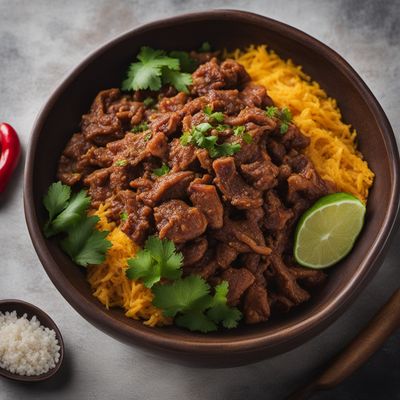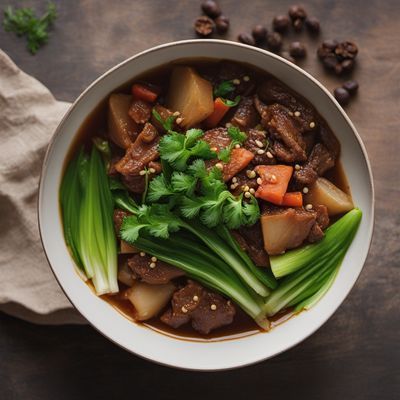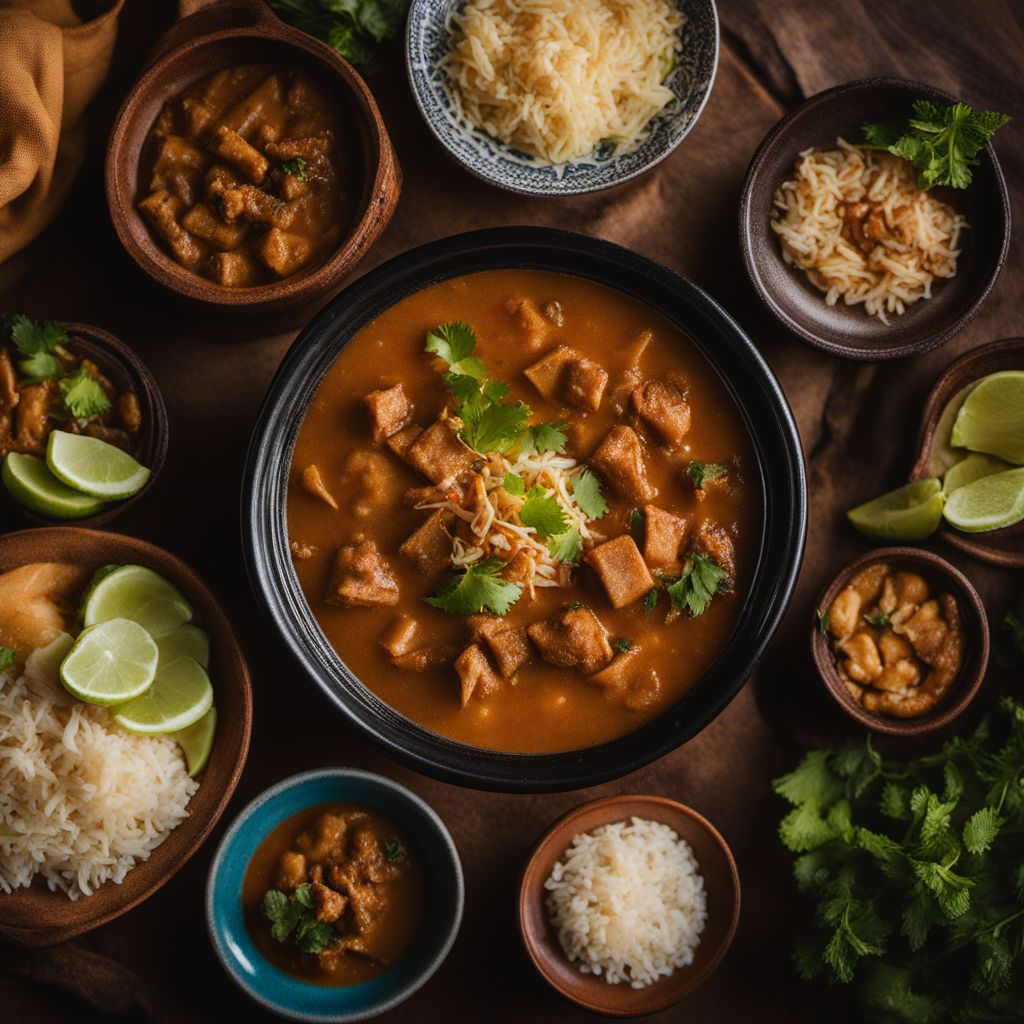
Dish
Cau cau
Cau cau is a dish that is loved by many Peruvians, especially those who grew up eating it. The tripe is cooked until tender and then combined with potatoes, onions, garlic, and other ingredients to create a rich and savory stew. The dish is typically served with rice and a side of salsa criolla (a spicy onion and tomato relish).
Origins and history
Cau cau has its roots in the indigenous cuisine of Peru, which used tripe as a staple ingredient. Over time, the dish evolved to include other ingredients, such as potatoes and onions, which were introduced by Spanish colonizers.
Dietary considerations
Gluten-free, dairy-free
Variations
There are many variations of cau cau, depending on the region and the cook. Some recipes call for the addition of vegetables, such as carrots and peas, while others use different types of meat, such as beef or chicken. Some cooks also add spices, such as cumin and oregano, to give the dish a more complex flavor.
Presentation and garnishing
Cau cau is typically served in a large bowl, with the rice and salsa criolla on the side. The dish is garnished with cilantro and aji amarillo (a Peruvian chili pepper), which gives it a vibrant color and a spicy kick. To prepare the aji amarillo, simply puree it in a blender with a little water, then strain the mixture through a fine-mesh sieve. Serve the dish hot, with a pisco sour on the side.
Tips & Tricks
To make the dish even more flavorful, marinate the tripe in a mixture of garlic, lime juice, and salt for a few hours before cooking. This will help to tenderize the meat and infuse it with flavor. Also, be sure to use fresh aji amarillo, as it will give the dish a more authentic flavor.
Side-dishes
Salsa criolla (spicy onion and tomato relish), rice
Drink pairings
Pisco sour (Peruvian cocktail made with pisco, lime, and egg white)
Delicious Cau cau recipes
More dishes from this category... Browse all »

Aab gosht
Indian cuisine
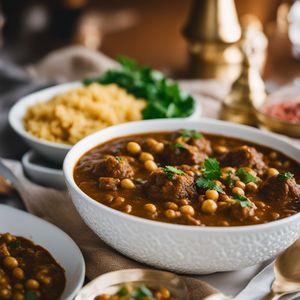
Abgoosht
Iranian cuisine
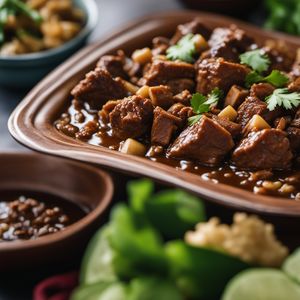
Adobo
Filipino cuisine
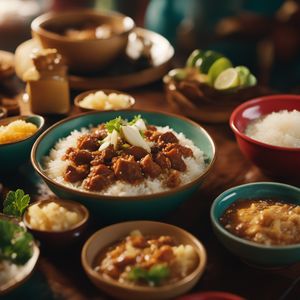
Adobo sa gatâ
Filipino cuisine

Adobong baboy
Filipino cuisine

Adobong baka
Filipino cuisine

Adobong dilaw
Filipino cuisine

Adobong hito
Filipino cuisine
